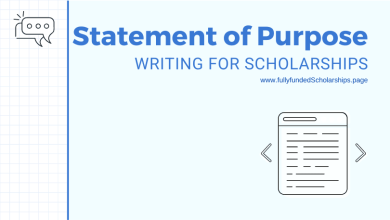
A letter of intent (LOI) is one of the formal documents that might be required in order to get a scholarship in college or university. For those students who are interested in getting a scholarship and funding, the intent letter is a great way to express their interest in a chosen field and being worthy of the scholarship.
You might need to write a letter of intent to apply for a scholarship & have no idea where to start. Sit back and relaxed because we have got you covered. In this article, we will provide instructions and tips for crafting an LOI that clearly emphasizes the student’s goals and interest in the scholarship.
After reading this article, you definitely will be able to craft a killer Intent letter.
Introduction to Letter of Intent (LOI):
A letter of intent (LOI), also referred to as a letter of interest, or a statement of purpose is a short essay that candidates need to write & submit along with their scholarship application. It is a document that outlines an individual’s intention to pursue a specific opportunity, such as a scholarship or academic program. The purpose of an LOI is to introduce yourself and explain your qualifications, as well as your future goals & motivation for pursuing the scholarship.
When it comes to applying for a scholarship, an LOI can be a valuable document for helping you stand out from other applicants. It allows you to provide additional information about goals & experiences that may not be conveyed through your transcripts or resume. You should specifically tailor this letter to the scholarship application requirements and should provide a detailed explanation of your intention to pursue the scholarship. Moreover, a letter of intent is a great way for you to explain why you are a strong candidate for the scholarship.
What to Include in an LOI:
Here is a step-by-step guide on what to include in a letter of intent (LOI) for a scholarship:
- Start with your contact information. This should include your name, mailing address, phone number, and email address.
- Include the recipient’s contact information. This should include the name of the organization and the name and title of the person you are addressing.
- Add the date you are writing the letter.
- Begin with a greeting, such as “Dear [Name]”
- Clearly state the purpose of the letter, which is to express your interest in receiving a scholarship.
- Provide a brief overview of your academic and career goals, and explain how the scholarship will help you achieve them.
- Discuss your previous academic record, including your grades, courses are taken, and any relevant awards or honors.
- Describe your work-related experience and any relevant skills or qualifications you have.
- Outline your future short-term and long-term goals and explain how the scholarship will help you achieve them.
- End with a closing paragraph thanking the recipient for considering your application.
- Sign the letter.
It’s important to keep the letter formal and to the point. The purpose of the letter is to demonstrate your passion for your field of study and to convince the scholarship committee that you are a strong candidate for the scholarship.
Structure of LOI for Scholarship Application:
Here is the format to write an Intent Letter:
- Use a formal business letter format, including necessary contact information.
- Follow the guidelines for the scholarship and tailor your letter to the specific requirements of the program.
- Outline your plans for studying and explain why you have chosen this particular field of study.
- Introduce yourself and explain your passion for the subject.
- Explain your reasons for wanting to study this subject and how it relates to your future career plans.
- Close the letter by thanking the committee and reiterating your enthusiasm for the scholarship and your future studies.
Remember to proofread your letter carefully before submitting it to ensure that it is clear and error-free.
Let’s Start Writing a Letter of Intent Together!
Finally, here are a few tips for writing a strong LOI for a scholarship application:
- Keep your LOI to one page and avoid unnecessary fluff.
- Use a clear and professional format.
- Edit and revise your LOI carefully before submitting it.
- Use concrete examples to demonstrate your qualifications and work ethic.
- Show your passion for your field of study and why you are the best fit for it.










